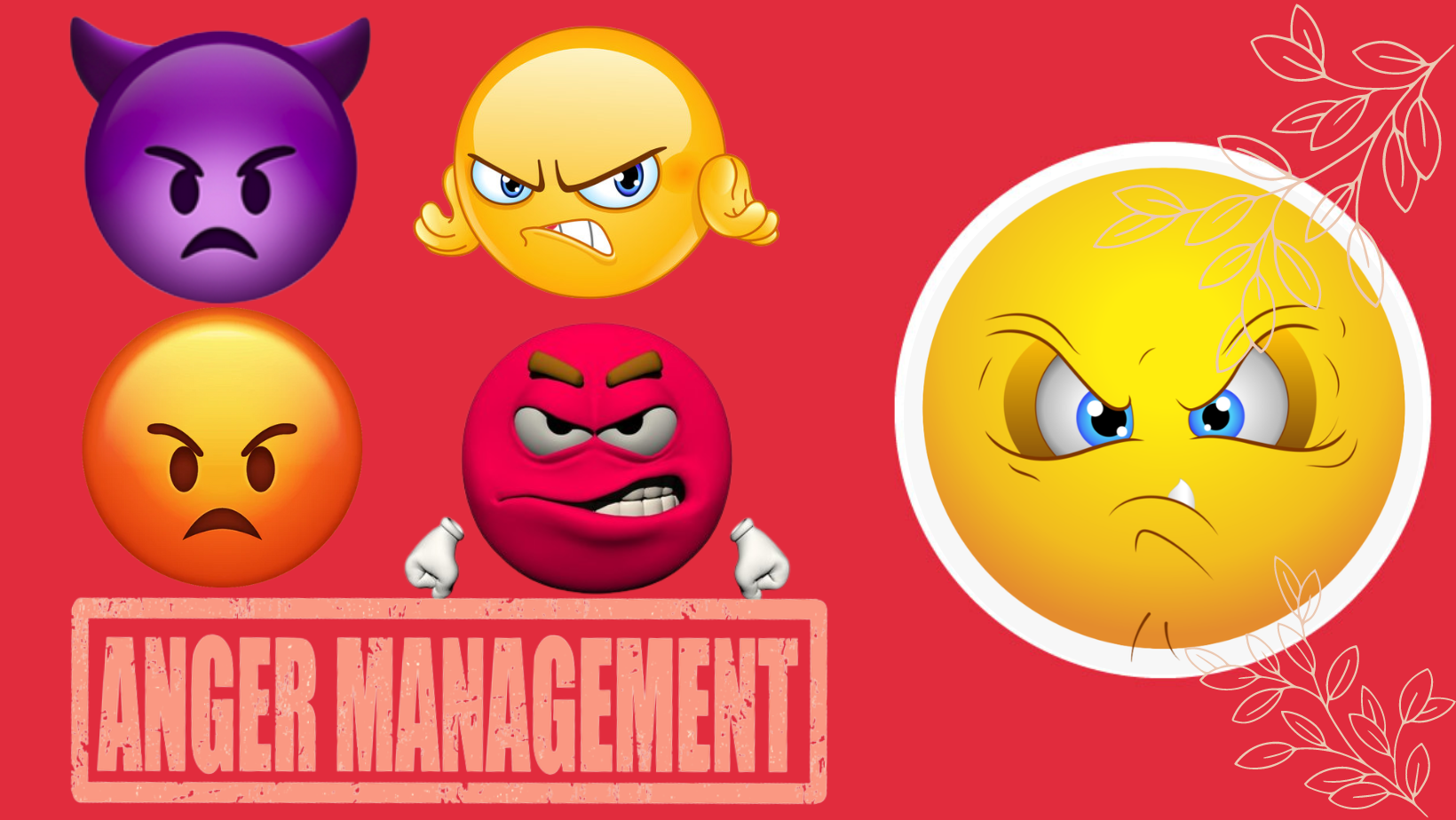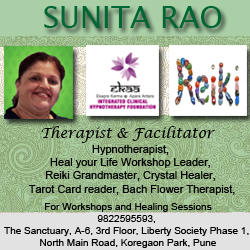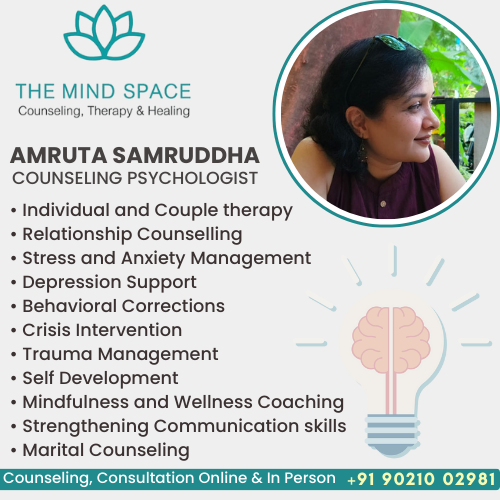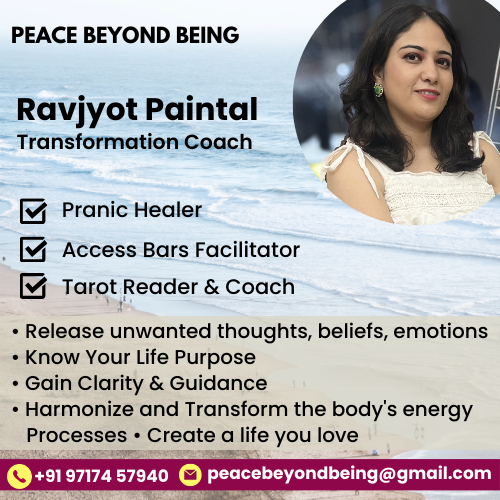Alternative Therapies
- Alternative Medicine
- Access Bars
- Access Body Processes
- Access Consciousness
- Access Energetic Faclift
- Acupressure
- Acupuncture
- Angel Healing
- Aura Reading
- Ayurveda
- Bach Flower Remedies
- Breathwork
- Chakra Healing
- Cosmetic Acupuncture
- Crystal Healing
- Cupping Therapy
- Emotional Freedom Technique (EFT)
- Ergonomics
- Fengshui
- Heal Your Life
- Geopathic Stress
- Face Reading
- Graphology
- Heal Your Life
- Holistic Solutions
- Holy Fire Reiki
- Homeopathy
- Ho'oponopono
- Hoodoo
- Hypnotherapy
- Inner Child Therapy
- Jesus Reiki
- Jikiden Reiki
- Manual Therapy
- Meditation
- Melchizedek Method
- Motivational Counseling
- Mudra Healing
- Nakshatra Energies
- Naturopathy
- Neuro Linguistic Programming (NLP)
- Panchakarma (Ayurveda)
- Past Life Regression
- Physiotherapy
- Pranic Healing
- Pyramids
- Redikall Healing
- Reiki
- Rudraksh
- Shamanic Healing
- Sound Healing
- Silva Mind Control Method
- Sujok therapy
- Tarot
- Theta Healing
- Unani Medicine
- Yoga
- Wicca
- Womb Healing
Diseases & Conditions
- Acne & Pimples
- Allergies
- Arthritis
- Asthma
- Behavioural Disorders
- Dandruff
- Diabetes
- Emotional Problems
- Gallstones
- Gastritis
- Hairloss
- Heart Diseases
- Hormonal Problems
- Hypertension
- Immune Disorders
- Infections
- Infertility
- Jaundice
- Kidney Disorders
- Liver Disorders
- Menstrual Disorders
- Migraine
- Neck & Back Pain
- Obesity
- Osteoporosis
- Peptic Ulcer
- Prevention
- Prostate Problems
- Psoriasis
- Sexual Dysfunctions
- Sinusitis
- Sleep Disorders
- Skin Diseases
- Stress
- Thyroid Disorders
- Ulcerative Colitis
- Urinary Infections
General Wellness
Anger Management Counselling in Pune
Sarayu Healing Center - Ms. Sunita Rao

In her pursuit of finding better ways to heal the human body, mind and spirit Sunita Rao has been certified by internationally renowned organizations such as the EKAA School of Integrated Clinical Hypnotherapy and Heal Your Life based on the philosophy of Louise L Hays. She is also a Reiki Grandmaster Practicing and initiating in the Usui system of Reiki..

The Mind Matters - Ms. Amruta Samruddha

Amruta Samruddha is a passionate Counseling Psychologist with years of experience in practice in providing therapeutic Interventions and assessments to Individuals seeking personal growth and emotional well-being

Ms. Ravjyot Paintal

Ravjyot Paintal founder of Peace Beyond Being, a Transformation Coach, Access Bars Facilitator, Tarot Reader and Coach, Pranic Healer.


Livin Harmony
Licensed Heal Your Life Workshop Leader, Teen Empowerment Facilitator and Life Coach, an Angel Therapist, Angel Life Coach and a advanced Numerologist.

Dr. Geetanjali Saxena.

Past life Regression Trainer, Family Constellation Trainer, Theta Healing Trainer, Inner Child Work, Angel Therapist, Reiki healer, Hypnotherapy, Crystal Healing, Graphology, Tarot card reader & Astrologer


Ms. Anjali Nagpal
Anjali Nagpal is a business trainer, a life coach and workshop facilitator certified to present Heal Your Life transformational workshop worldwide (based on the philosophy of Louise L Hay) approved by Hay House, US. She also conducts others workshops relating to self healing.

ANGER MANAGEMANT

Anger doesn't typically exist by itself, particularly when it is intense or chronic. People with explosive tempers tend to do this and/or those who deal with their anger by physically acting out will also exhibit a number of other symptoms, including anxiety, unstable moods, a propensity for impulsive behavior, problems with drugs or alcohol, and an odd contradictory feeling towards those who are close to them. This feeling is characterized by a strong fear of being abandoned mixed with discomfort whenever they become overly emotionally involved with others.
Depression
Anger that's kept bottled up can affect your thoughts and feelings. You may begin to feel unhappy and lose interest in things you used to enjoy, such as hobbies, work, friends...
Stress
Stress related to work, family, health and money problems may make you feel anxious and irritable.
Frustration
You may get angry if you fail to reach a goal or feel as if things are out of your control.
Fear
Anger is a natural response to threats of violence, or to physical or verbal abuse.
Annoyance
You may react in anger to minor irritations and daily hassles.
Disappointment
Anger often results when expectations and desires aren’t met.
Resentment
You may feel angry when you’ve been hurt, rejected or offended.

Anger can be contained, then transformed or directed. This occurs when you suppress your rage, put it out of your mind, and concentrate on the good. Your anger should be reduced or suppressed in order to channel it into more useful behaviour. The risk with this kind of reaction is that, if it isn't given a chance to be expressed openly, your anger may shift inward and on yourself. Anger that is directed inside can result in sadness or high blood pressure.








